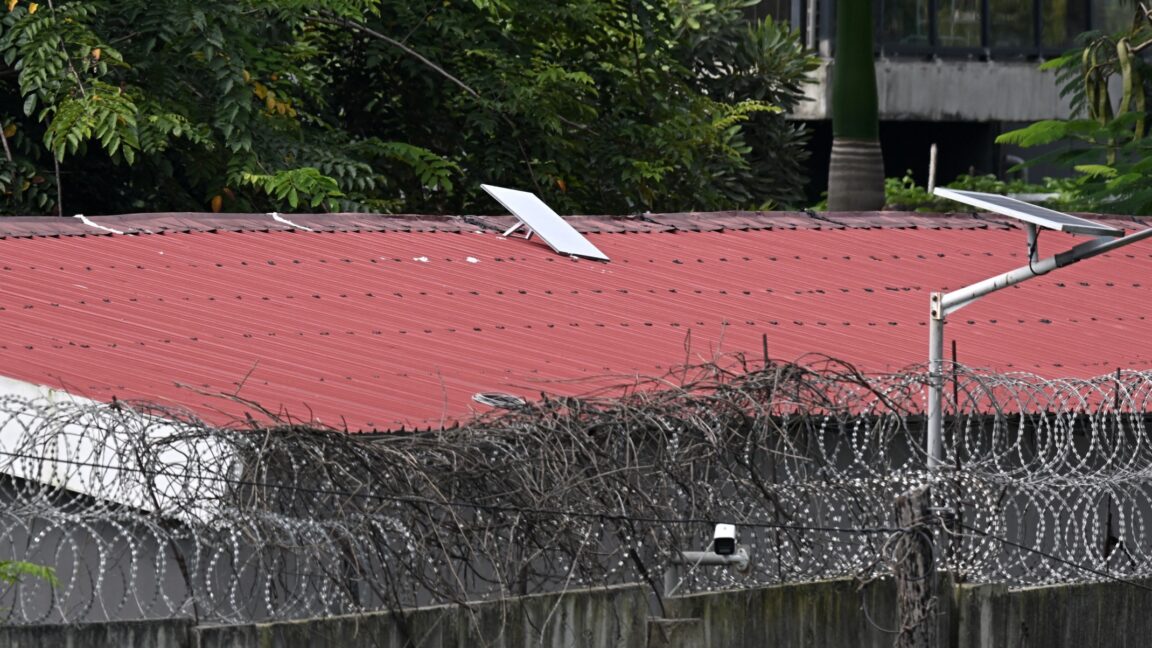Copyright Ars Technica

SpaceX said it disabled over 2,500 Starlink terminals suspected of being used by scammers in Myanmar. Lauren Dreyer, vice president of Starlink business operations, described the action in an X post last night after reports that Myanmar’s military shut down a major scam operation. “SpaceX complies with local laws in all 150+ markets where Starlink is licensed to operate,” Dreyer wrote. “SpaceX continually works to identify violations of our Acceptable Use Policy and applicable law… On the rare occasion we identify a violation, we take appropriate action, including working with law enforcement agencies around the world. In Myanmar, for example, SpaceX proactively identified and disabled over 2,500 Starlink Kits in the vicinity of suspected ‘scam centers.'” Starlink is not licensed to operate in Myanmar. While Dreyer didn’t say how the terminals were disabled, it’s known that Starlink can disable individual terminals based on their ID numbers or use geofencing to block areas from receiving signals. On Monday, Myanmar state media reported that “Myanmar’s military has shut down a major online scam operation near the border with Thailand, detaining more than 2,000 people and seizing dozens of Starlink satellite Internet terminals,” according to an Associated Press article. The army reportedly raided a cybercrime center known as KK Park as part of operations that began in early September. The operations reportedly targeted 260 unregistered buildings and resulted in seizure of 30 Starlink terminals and detention of 2,198 people. “Maj. Gen. Zaw Min Tun, the spokesperson for the military government, charged in a statement Monday night that the top leaders of the Karen National Union, an armed ethnic organization opposed to army rule, were involved in the scam projects at KK Park,” the AP wrote. The Karen National Union is “part of the larger armed resistance movement in Myanmar’s civil war” and “deny any involvement in the scams.” Myanmar “notorious for hosting cyberscam operations” Satellite images and drone footage recently showed “frenetic building work in the heavily guarded compounds around Myawaddy on the Thailand-Myanmar border, which appear to be using Elon Musk’s Starlink satellite Internet service on a huge scale,” Agence France-Presse (AFP) reported last week. The construction occurred despite a previous crackdown that resulted in the release of “around 7,000 people from a brutal call center-like system that runs on greed, human trafficking and violence,” the AFP wrote. “Freed workers from Asia, Africa and elsewhere showed AFP journalists the scars and bruises of beatings they said were inflicted by their bosses. They said they had been forced to work around the clock, trawling for victims for a plethora of phone and Internet scams.” Another AFP article said “the border region fraud factories are typically run by Chinese criminal syndicates, analysts say, often overseen by Myanmar militias given tacit backing by the Myanmar junta in return for guaranteeing security.” The Associated Press wrote that “Myanmar is notorious for hosting cyberscam operations responsible for bilking people all over the world. These usually involve gaining victims’ confidence online with romantic ploys and bogus investment pitches. The centers are infamous for recruiting workers from other countries under false pretenses, promising them legitimate jobs and then holding them captive and forcing them to carry out criminal activities.” Senator urged Musk to take action An October 2024 report by the United Nations Office on Drugs and Crime described the use of Starlink in fraud operations. About 80 “Starlink satellite dishes linked to cyber-enabled fraud operations” were seized between April and June 2024 in Myanmar and Thailand, the report said. Starlink is prohibited in both countries. “Despite Starlink use being strictly monitored and, in some cases, restricted through geofencing, organized crime groups appear to have found ways around existing security protocols in order to access the remote high-speed Internet connectivity made possible by this portable technology,” the report said. In July this year, US Sen. Maggie Hassan (D-NH) urged SpaceX CEO Elon Musk to prevent criminals from using Starlink for scam operations that target Americans. “While SpaceX has stated that it investigates and deactivates Starlink devices in various contexts, it seemingly has not publicly acknowledged the use of Starlink for scams originating in Southeast Asia—or publicly discussed actions the company has taken in response,” Hassan wrote in a letter to Musk. “Scam networks in Myanmar, Thailand, Cambodia, and Laos, however, have apparently continued to use Starlink despite service rules permitting SpaceX to terminate access for fraudulent activity.” Hassan is the top Democrat on the US Congress Joint Economic Committee, which is reportedly investigating the use of Starlink in the scam operations. Dreyer said last night that SpaceX is committed to “detecting and preventing misuse by bad actors.”



